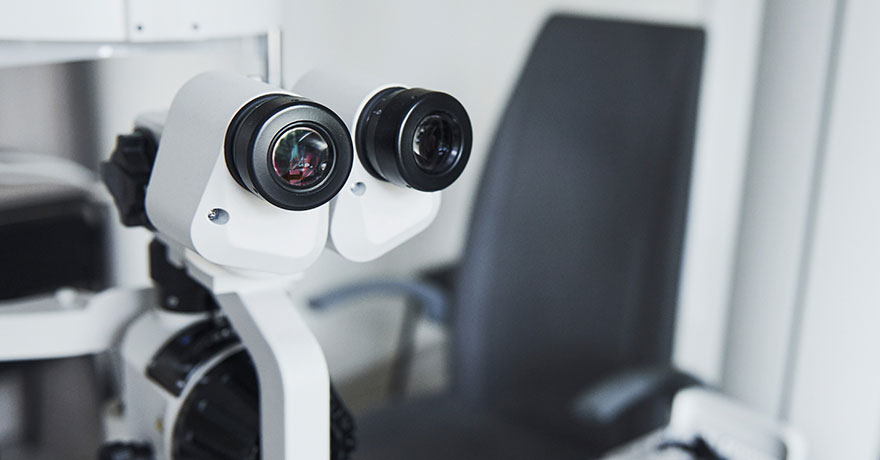Ophthalmology Q&A with Dr. Knudtson 👓
- Winter 2024

Q: What services and procedures does Yorkshire Eye Clinic & Optical offer?
DR. K: We do regular eye exams, glasses, contacts and full medical eye care. We see people for diabetic eye exams, macular degeneration, glaucoma, cataracts and some neurologic eye conditions. We also monitor and treat retinal conditions such as tears and detachments. We work with subspecialists in retina, glaucoma and ocular plastics if needed. We also do laser treatments for some retinal conditions and for posterior capsulotomy after cataract surgery.
Q: What procedures do you perform in-office?
DR. K: In the office we do a number of procedures, including removal of skin lesions, cysts and skin tags. We incise and drain chalazions or styes. We do some lid procedures to reverse entropion or ectropion, conditions where the eyelid turns in or out. We also handle eye lid laceration repair.
Q: What surgical procedures do you perform?
DR. K: In the OR we will do more advanced procedures of the lids such as blepharoplasty. For little ones we do nasolacrimal probing and chalazions under anesthesia. We can do eye trauma repair, such as ruptured globes, depending on the severity of the rupture and the severity of other injuries the person has sustained in accidents. And of course, we remove cataracts.
Q: What kind of special lens can you use for cataract surgeries?
DR. K: Most of the time we use a single vision intraocular lens (IOL) that is focused for distance, especially if the patient doesn’t mind wearing glasses. We do use toric IOLs to reduce a person’s astigmatism, if indicated, and if we are trying to get distance vision without glasses. Sometimes we can use multifocal IOLs that give some distance and near vision in one lens. However, there are pros and cons to that option that we discuss as vision is not always crystal clear without glasses in that case. Toric and multifocal lenses do have an extra out of pocket cost to the patient that insurance does not cover; we always discuss that fully with the patient so they can make the best decision for themselves.
Q: Are there any medications that may cause complications during cataract surgery?
DR. K: The medicine Flomax, an alpha-blocker, is really great for the prostate but stinks for doing eye surgery. It atrophies the smooth muscle in the iris which leads to a poorly dilating pupil and a floppy iris during cataract surgery. If it is legitimate to do cataract surgery before a patient goes on Flomax, that would be ideal. If not, we can deal with Flomax’s effects with a pupil expansion ring during the surgery, but it does make the surgery a bit more complex.
Q: When should patients be referred to you?
DR. K: If an eye is really red and painful and you are not sure if the condition is conjunctivitis or is actually iritis, don’t be afraid to ask us to see the patient. That’s what we are here for!
Q: How can patients be referred to you?
For most referrals, call Yorkshire Eye Clinic & Optical at (605) 696-8870 or fax an order to the clinic at (605) 696-8824. We will need the patient’s name, date of birth, phone number, diagnosis, insurance information and the last clinic note related to the referral.
For more information:

Yorkshire Eye Clinic & Optical
Ophthalmologist
(605) 696-8870
kknudtson@brookingshealth.org

